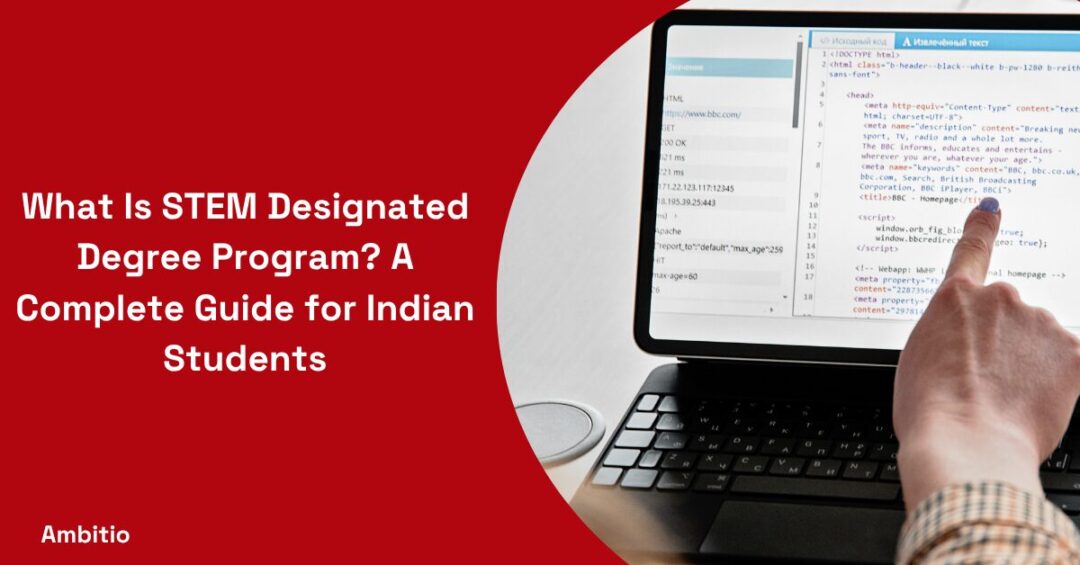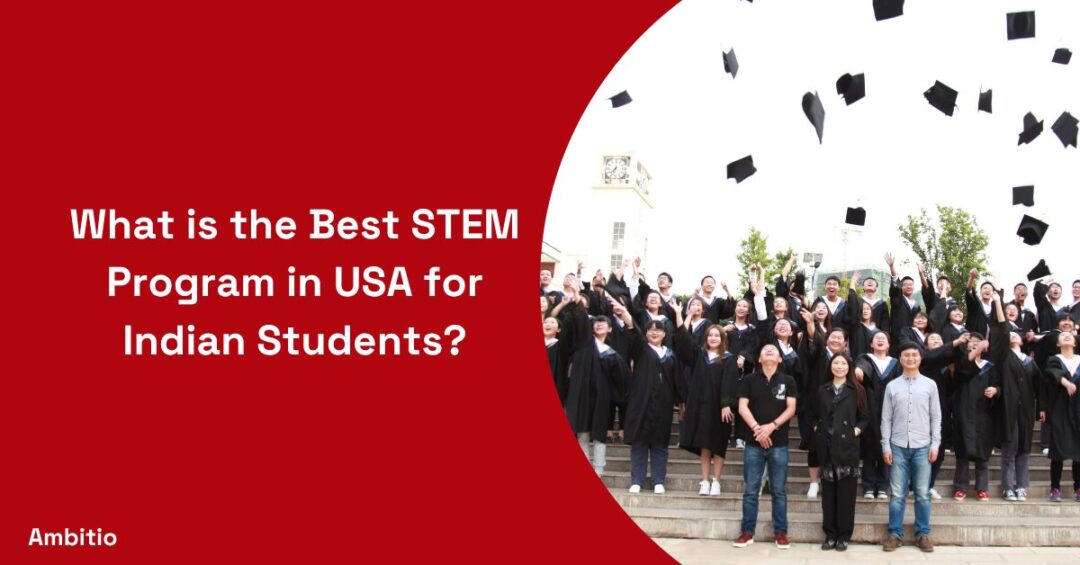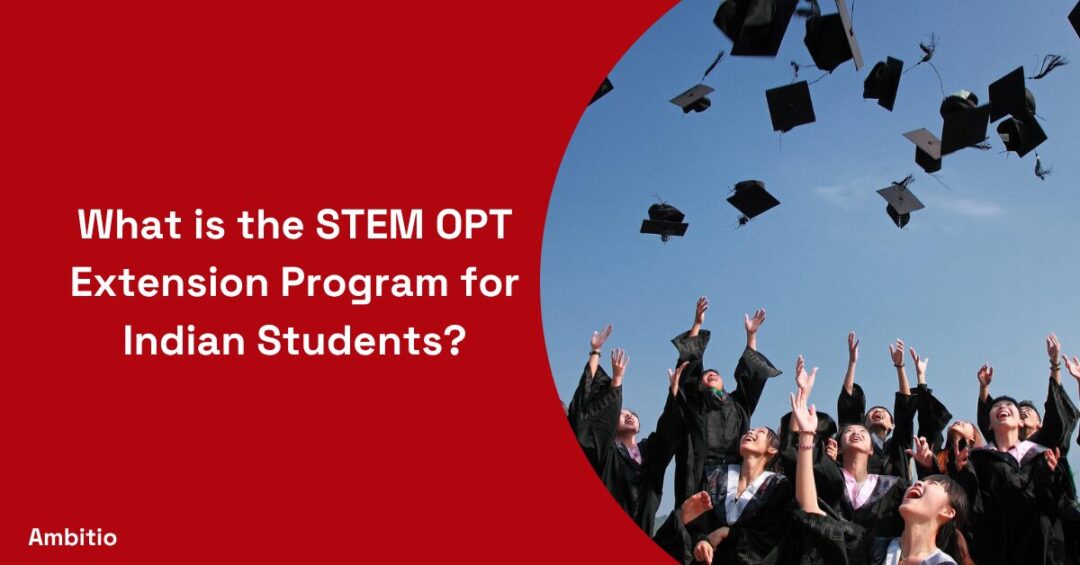12 June 2025
5 minutes read
MS in STEM Education Masters Programs for Indian Students

Key Takeaways
- STEM education masters programs help Indian students gain skills in STEM teaching, curriculum design, and education research for global classrooms.
- STEM education masters programs offer top university access, scholarships, and hands-on coursework in science and mathematics education.
- STEM education masters programs prepare students seeking careers in K-12 teaching, education policy, and STEM-focused pedagogy.
With the world becoming more technological and science-oriented every day, a STEM education degree empowers students with the skills and expertise necessary to navigate and lead in fast-changing educational settings.
For Indian students, a master’s degree in STEM education provides opportunities for international career prospects in the field of science, technology, engineering, and mathematics (STEM).
The M.S. in STEM education emphasizes both formal and informal STEM education, ensuring that education prepares students to become innovative science teachers in the k-12 setting.
Whether through a master of arts or a master of science in STEM, the degree program is rooted in tedious preparation for prospective mathematics or science teachers, including those who aim to impact education policy or specialize in secondary school teaching.
With growing interest from the national science foundation and global institutions, STEM education welcomes students seeking to enhance student learning, drive educational change, and develop an international and practically-oriented understanding of teacher education.
What is MS in STEM Education?
Did you know the term “STEM” was first coined by the U.S. National Science Foundation in the early 2000s?
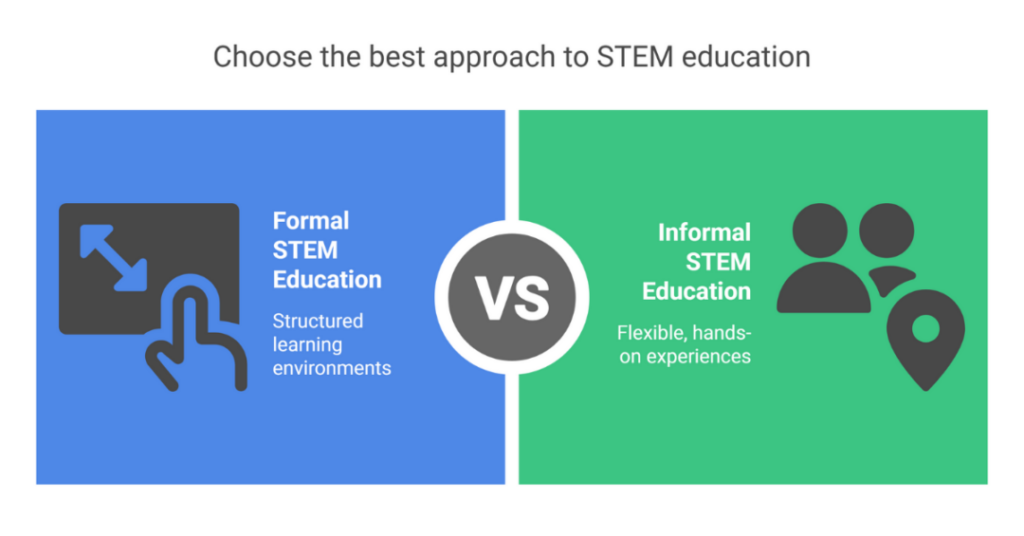
Since then, it has grown into a global movement that powers education systems and careers alike.
- A Master of Science (MS) or Master of Arts (MA) in STEM focuses on building practical expertise in science, technology, engineering, and math education.
- The program bridges the gap between theory and classroom practice, helping teachers in the k-12 setting apply research-based strategies.
- It is suitable for practicing teachers, graduate students, and international applicants who wish to specialize in science education or mathematics education.
- Courses are designed for students who have completed a bachelor’s degree in a STEM field and want to further their education and learning.
- The degree fosters formal and informal STEM approaches to improve student learning outcomes.
How to Take Admission into Top STEM Colleges of Education?
Fun fact: Some top universities now allow students to pursue a teaching credential and a master’s degree simultaneously!
To gain admission into a top college of education for a STEM program, Indian students should prepare the following:
- Complete a bachelor’s degree in a stem subject (science, technology, engineering, mathematics)
- Achieve competitive scores in standardized exams such as GRE, IELTS, TOEFL, or GMAT (depending on the university)
- Submit a well-structured personal statement or statement of purpose highlighting your goals
- Attach academic transcripts, resume, and at least two letters of recommendation
- Meet additional course requirements or prerequisites specified by the department of education
Admission Requirement Table:
| Admission Component | Details |
|---|---|
| Bachelor’s Degree | Required in a STEM or related education field |
| Standardized Tests | GRE/SAT/ACT; IELTS/TOEFL for English proficiency |
| Personal Statement | Must show commitment to education in stem and future teaching goals |
| Letters of Recommendation | 2-3 from academic/professional mentors |
| Resume | Should include teaching experience, STEM work, and achievements |
| Interview | May be required for shortlisted international applicants |
What are the Courses and Course Requirements for STEM Degrees in Education?
Surprise: Many STEM Education programs include practical teaching sessions in real classrooms as part of their coursework!
Courses in STEM programs are designed to prepare students seeking a career in teaching, curriculum development, or education research. These courses provide a blend of theoretical frameworks and hands-on experiences:
- Curriculum Design in STEM Subjects: Develop science and mathematics content knowledge.
- Pedagogical Methods: Learn innovative teaching strategies for middle and secondary school levels.
- Research in STEM: Conduct original research and contribute to education policy.
- Assessment Techniques: Understand how to measure and improve student learning.
- Technology Integration: Use digital tools for science and technology education.
Course Requirements and Programs by University:
| Program | University (USA/UK/Canada) | Fees (Approx) | Eligibility | Exams Required | Scholarships Available |
| Master of Science in STEM | Harvard Graduate School of Education | $50,000/year | Bachelor’s in STEM, Teaching Experience | GRE, TOEFL | Yes (Need & Merit-based) |
| Master of Education (STEM) | University of Toronto, Canada | CAD 30,000/year | STEM UG, 2+ years teaching preferred | IELTS/TOEFL | Yes |
| MSc in STEM Education | University of Oxford, UK | £26,000/year | 2:1 STEM UG, Academic Writing Sample | IELTS, GRE | Rhodes, Clarendon |
| M.Ed. in STEM Teaching | Stanford University, USA | $55,000/year | STEM UG, SOP, Resume, LORs | GRE, TOEFL | Knight-Hennessy, Fellowships |
| Online M.Ed. STEM | Penn State World Campus, USA | $25,000 total | STEM UG, Resume, Statement | TOEFL/IELTS | Yes (limited) |
Tips to Impress the Office of Graduate Admissions Office
Hook: Admissions officers often read hundreds of applications a week. What makes yours stand out?
To boost your chances:
- Be Authentic: Let your passion for STEM subjects and education research come through in your statement of purpose.
- Show Impact: Demonstrate how your work in formal and informal STEM shaped student learning.
- Tailor Application: Align your resume and LORs to each school of education’s mission and vision.
Admission Boost Table:
| Element | Pro Tip |
| Statement of Purpose | Mention how STEM education can shape responses to future challenges |
| Resume | Highlight projects that improved knowledge and skills in teaching |
| LORs | Choose mentors who know your strengths well |
Is STEM a Good Option for Education Research?
Here’s a thought: STEM is no longer just about labs. It’s now a core lens through which education systems innovate.
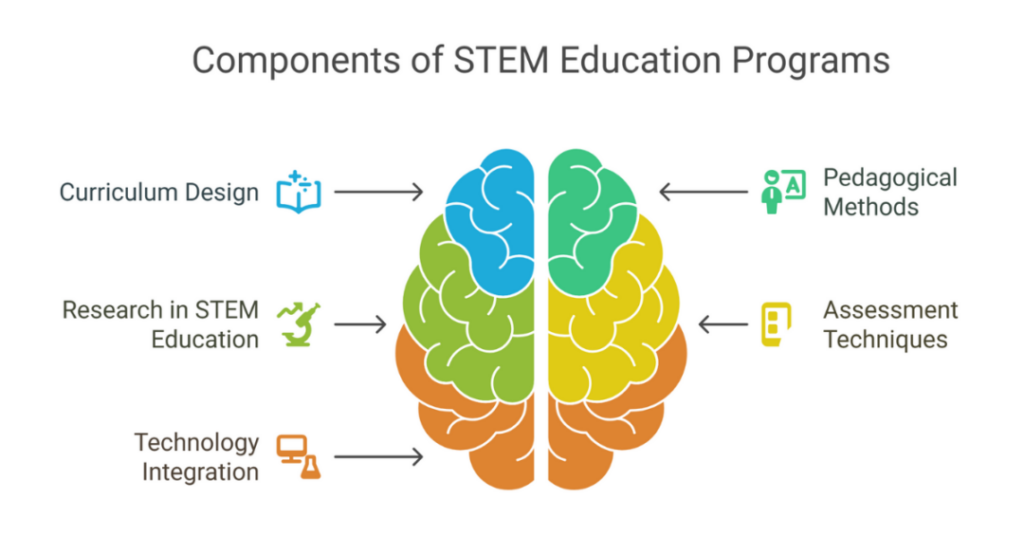
STEM education can shape responses to major global educational challenges through:
- Researching instructional strategies in science and mathematics education
- Designing inclusive models across formal and informal STEM education
- Informing education policy that supports secondary school and k-12 learning globally
Why STEM in Education Research?
| Benefit | Description |
| Innovation | STEM fields drive curriculum reform and instructional technology |
| Global Relevance | Current stem trends influence international education systems |
| Research Funding | Strong support from bodies like the national science foundation |
Conclusion
A master’s degree in STEM education offers Indian students the ideal path to elevate their role in education and learning, from k-12 classrooms to education policy labs.
By combining science education, pedagogical research, and real-world experience, these programs empower graduate students to lead in increasingly technological classrooms.
Whether you pursue an online M.Ed. or a full-time master of science program, degrees in education from leading colleges of education prepare you for impactful careers.
International applicants with a bachelor’s degree in a STEM field can benefit from generous scholarships, intensive graduate coursework, and rich student learning experiences across formal and informal settings.
With careful preparation and authentic storytelling in your graduate admissions documents with the help of Ambitio, you can turn your STEM content passion into a transformative educational journey.
FAQs
What are STEM education masters programs?
STEM education masters programs are graduate-level degrees focused on teaching strategies, research, and curriculum development in science, technology, engineering, and mathematics.
Who should apply for STEM education masters programs?
STEM education masters programs are ideal for students seeking careers as science teachers, curriculum specialists, or researchers in K-12 and higher education systems.
What are the eligibility criteria for STEM education masters programs?
Most STEM education masters programs require a bachelor’s degree in a STEM field, teaching experience, and scores from exams like GRE, IELTS, or TOEFL.
Are scholarships available for STEM education masters programs?
Yes, many universities offer merit-based and need-based scholarships for international students enrolling in STEM education masters programs.
Can I pursue STEM education masters programs online?
Yes, several universities provide flexible online formats for STEM education masters programs, especially designed for working professionals and practicing teachers.
What is the career scope after completing STEM education masters programs?
Graduates of STEM education masters programs can become K-12 science teachers, education researchers, curriculum designers, or policy advisors.
Which countries are best for pursuing STEM education masters programs?
The USA, UK, and Canada are top destinations offering reputed STEM education masters programs with strong research opportunities and global recognition.

You can study at top universities worldwide!
Get expert tips and tricks to get into top universities with a free expert session.
Book Your Free 30-Minute Session Now! Book a call now















